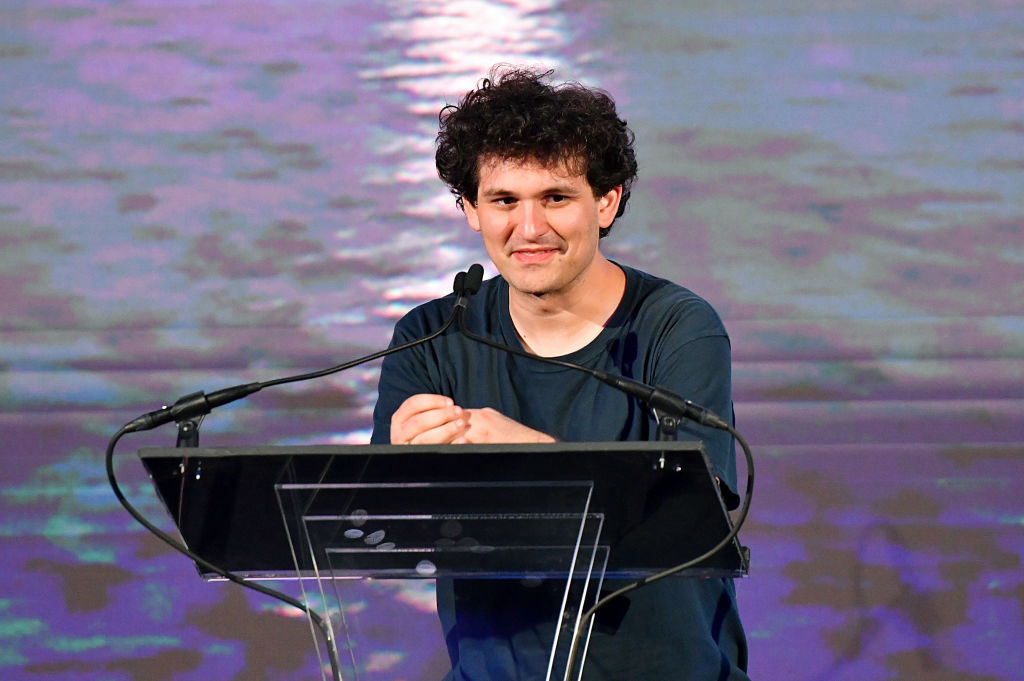Crypto whizzkid Sam Bankman-Fried has come a cropper. His $16 billion (£13 billion) fortune vanished overnight last week after FTX, the crypto exchange he founded, collapsed. What makes the tale of his rise and fall fascinating is that Bankman-Fried wasn’t in it for the money. Well, not in the normal way.
Bankman-Fried is (or was) the poster boy of the Effective Altruism (EA) movement: a group of rational philanthropists who use their time and money in the most efficient possible way. That might involve becoming a banker, or crypto king, in order to earn millions, or in this case billions, so that they can give it away. Bankman-Fried fell in with the EA crowd during his time studying physics at MIT, and decided to become a banker so he could ‘earn to give’. After a stint working at the Centre for Effective Altruism, he founded a crypto trading firm and then a crypto exchange.
As its power has grown, the vision of the EA movement has become vaguer and more contentious
His rise over the past decade reflects that of the EA movement, whose leading thinkers are endorsed by Elon Musk among others. But as its power has grown, its vision has become vaguer and more contentious. At first the aim was to save as many lives as possible, through carefully researched interventions in the developing world, such as buying malaria nets.
More recently the buzzword has been ‘longtermism’, recently popularised by one of EA’s founders, the philosopher William MacAskill. This means looking beyond the needy humans of our day and trying to ensure the future prosperity of humanity. The logic, according to MacAskill, is that since the number of humans in the future is likely to dramatically outnumber us in the here and now, they deserve much more of our attention. Bankman-Fried said he was a believer in longtermism. It prompted him to become more involved in politics, becoming one of the biggest donors to the Democrats.
The ‘longtermist’ turn of EA is a welcome one. Why? Because once the future becomes central to this philosophy, its absurd pretentions become obvious. Effective altruism is reheated utilitarianism. A moralist who claims to know what course of action can do the most good in the world today is just about capable of convincing people that he knows what he is talking about. A moralist who claims to know how to make the world a better place in hundreds of years’ time is likely to be taken less seriously. He, more or less, admits he’s bluffing.
Even without the ‘longtermist’ aspect, this new utilitarianism is a thin and chilling philosophy. Someone who decides to be mega-rich in order to give it away seems to me more creepy than admirable. Such calculations make morality into a question of measurable outcomes, and separate it from humdrum difficult life where moral effort must be made to treat people decently, to do one’s duty, to muddle along. Whether it means to or not, the EA movement reveres capitalism: money can buy good outcomes, so in a sense it is a godlike presence hovering over all moral dilemmas. It’s a bourgeois little creed; it supposes that the serious moral agent is the educated citizen with disposable income, who is assumed to be naturally good. It has no conception of morality’s universal core, the struggle between good and evil.
It is an ideology of hubris. Sam Bankman-Fried is now the best example of that. Somewhere along the way, the rationalists forgot one source of risk: themselves.







Comments